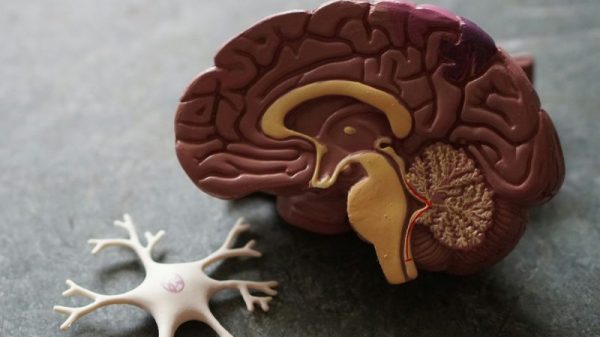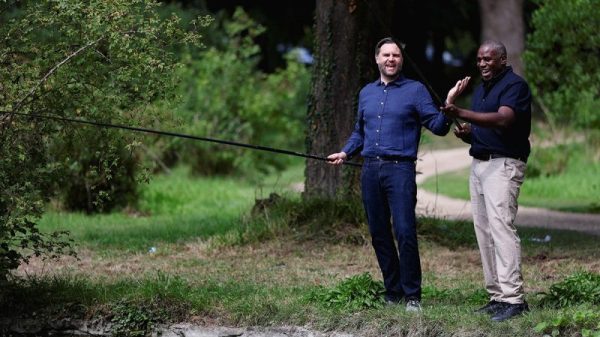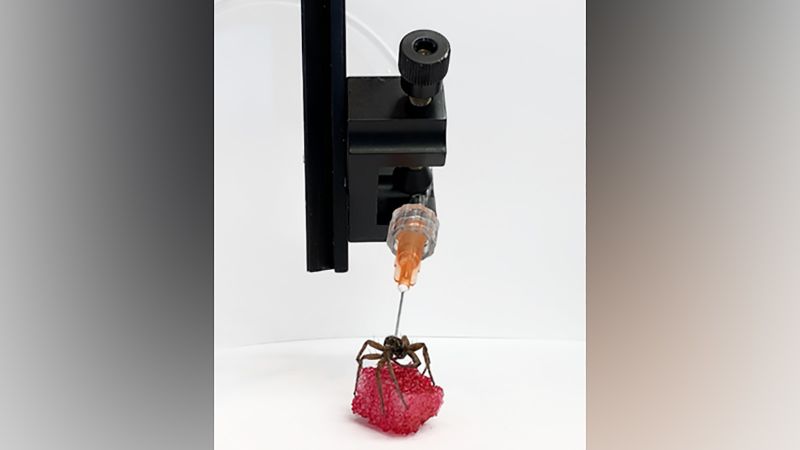How do you feel when you read the same word many, many, many times? Do people have an equal number of hairs in both their nostrils? Does electrifying your tongue change the taste of the food you are eating?
The scientists who researched these questions are among the winners of this year’s Ig Nobel Prizes – an accolade that has no affiliation to the Nobel Prizes – which aim to “celebrate the unusual, honor the imaginative and spur people’s interest in science, medicine, and technology.”
The Ig Nobel Prize’s 33rd ceremony took place virtually on Thursday night, with prizes awarded by “genuine, genuinely bemused” Nobel laureates over Zoom. Each winner received a (now defunct) 10 trillion Zimbabwe dollar bill and a pack of “Ig Pseudo Cola.”
Winners of the prizes represented 22 countries, including five researchers from the United States, four from the United Kingdom, and three from China.
Geologist Jan Zalasiewicz won the coveted Chemistry and Geology Prize for his research into why many scientists like to lick rocks. According to Zalasiewicz, scientists lick rocks as it is easier to tell its type when it is wet. The researcher demonstrated this scientific approach by licking a 400 million-year-old trilobite during his online acceptance speech.
The Literature Prize went to a team of researchers who were offered “congratulations and congratulations and congratulations and congratulations and congratulations” for their research into “jamais vu,” the experience of finding a familiar thing unfamiliar, in the repetition of language. The researchers found that about two-thirds of people reported feeling “peculiar” when they repeated the same word about 30 times.
A team from Rice University in Texas won the Mechanical Engineering Prize for re-animating dead spiders to use as mechanical gripping tools, able to grasp objects up to 130% of their own weight.
The Medicine Prize was awarded for research into how many nose hairs are in each of a person’s nostrils. Using dead bodies in their investigation, the winning team found that there are around 120 nose hairs in the average person’s left nostril, and 112 in their right. This work will be used to investigate how the immune systems of people with alopecia, a condition that causes hair loss, are affected by a lack of nose hairs.
Research into brain activity when a person speaks backward won the Ig Nobel Communication Prize, while the Public Health Prize was awarded to urologist Seung-min Park, who invented the Stanford Toilet, a device that analyzes excrement, recognizing users by their “analprint” – an identifier as unique as a fingerprint, apparently.
Japanese scientists Homei Miyashita and Hiromi Nakamura won the Nutrition Prize for their research into how electrification can affect the taste of food, finding that it increased users’ perception of saltiness.
American psychologists Stanley Milgram, Leonard Bickman and Lawrence Berkowitz won the Psychology Prize for investigating how members of a crowd looked up if they saw other people doing so, while the Education Prize was awarded for research into how teachers’ boredom affects the boredom of students in a classroom.
Finally, the Physics Prize went to a team who investigated how the sexual activity of anchovies impacts ocean-water mixing and the global circulation of ocean currents.
The ceremony was accompanied by mini-non-opera songs (songs with no plot, sung in an operatic way) about water, as well as an annual paper plane throwing event.
The researchers will have the opportunity to meet one another at a companion Ig Nobel Face-to-Face event in Cambridge, Massachusetts in November. More songs and paper planes are expected.






































